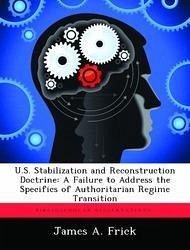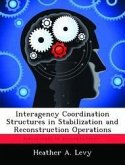The evolving U.S. stabilization, reconstruction and development doctrine displays the tenets necessary to stabilize a state following conflict; however, this doctrine remains insufficient for insuring long-term stability. To adequately guide stability operations U.S. doctrine must address transitions from authoritarian regimes. The logic of the current doctrine manifests a commitment to democracy but fails to realize that the factors considered as sources of conflict are often the basis for maintaining support and stability in authoritarian regimes. Consequently, deposing an authoritarian regime requires a greater attention to governance rather than democratization. The examination of U.S. stability and reconstruction doctrine reveals principle tenets stipulating that a safe and secure environment, establishment of rule of law, social well-being, stable governance and a sustainable economy are necessary to stabilize a post-conflict state. Those tenets have antecedents in Western political philosophy. However, a careful examination of the doctrine reveals no concern for the type of regime that has been overthrown or replaced. Hence, the doctrine provides no guide to the expectations of the people who now have a new government. In other words, how a regime was replaced and how the previous regime governed has a significant impact on how the new regime is perceived. A close examination of the inherent structural aspects of authoritarian regimes discloses differences the stabilization doctrine does not consider. Authoritarian regimes create a system that depends on certain allegiances and dependencies to retain authority and maintain stability. These regimes purposely create conditions the U.S. considers detrimental to stability to achieve these ends. Authoritarian regimes may be open to Western liberalization only to the point that it does not reduce their authority. These regimes will outwardly appear to be liberalizing and adopting democratic norms to satisfy the in








